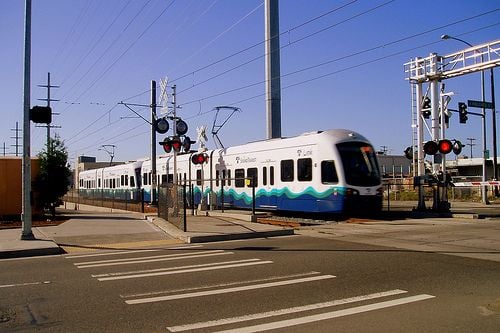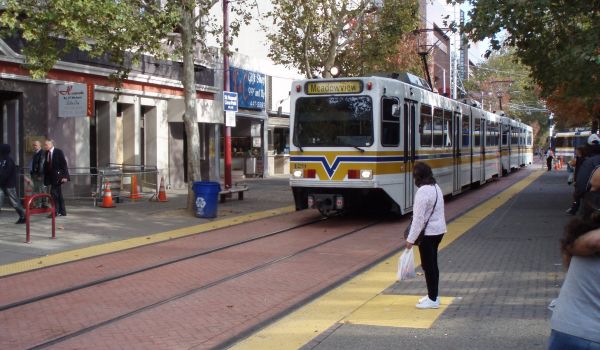This piece originally appeared on Crosscut.
A Washington state legislator representing Federal Way, a city just over 20 miles south of Seattle, wants the state to do annual performance audits on Sound Transit, the region’s public transit authority, contending that it needs feedback to improve a tarnished reputation.
“It’d be a series of audits designed to make (Sound Transit) heroes to the public. Right now, they’re not heroes to the public,” said state Rep. Mark Miloscia, who introduced a bill Thursday to require annual performance audits.
The State Auditor’s Office is set to begin an audit shortly — expected to be finished by September — to see how Sound Transit has dealt with shrinking tax revenue, whether its ridership statistics are accurate, and whether the authority can meet its constructions obligations on time and within budget.
Miloscia said his proposed additional yearly audits would provide regular feedback to Sound Transit to ensure it is meeting its stakeholders’ concerns. His fellow 30th District House member, Rep. Katrina Asay, is a cosponsor of the bill.
An underlying factor in the current and possible future audits is that the public approved an $18 billion bond issue in 2008 that included extending Seattle’s light rail line to Federal Way by 2023. Last year, Sound Transit said the predicted revenues could only handle extending the rail line to Highline Community College in Des Moines, Wa., and no farther south.
Federal Way Mayor Skip Priest, in a Dec. 6, 2011 letter to Sound Transit, wrote, “For decades, Federal Way voters have been hearing empty promises that trains will reach their community… I am hearing daily from residents who are outraged by the way that Sound Transit has marginalized this community’s needs.”
Miloscia said Federal Way residents will end up paying $240 million in taxes because of the 2008 ballot without getting the light rail line they were promised in the campaign.
He said his bill is not retaliation for that situation, but a way to help Sound Transit improve its planning and performance year by year.
Sound Transit is working on a light rail tunnel between Westlake Center in Seattle and the University of Washington. And it still plans to extend the current line another two miles south of SeaTac International Airport under the 2008 package.
Sound Transit spokesman Kimberly Reason said the authority already has outside accounting firms doing annual audits to check its finances. The State Auditor’s Office’s last audited Sound Transit in 2007. And the authority’s audits are available on its website. “We have a rigorous audit program,’ she said.
The authority’s legal staff has not yet studied Miloscia’s bill, so Sound Transit does not have an opinion about it. Reason said Sound Transit wants to eventually extend the rail line to Federal Way, but the recession has trimmed South King County’s tax revenue by 31 percent to shrink the authority’s revenue. “Every jurisdiction has been hit hard by the recession,” she said.
Sound Transit wrote to Priest that the authority is not legally allowed to transfer tax money from a more revenue-prosperous “sub-area” and its capital projects in its three counties — Snohomish, King, and Pierce — to make up for less-than-expected tax income in the South King County sub-area covered in the 2008 ballot.
“Mayor Priest is disappointed, and we understand,” Reason said.
The State Auditor’s Office has so far taken no immediate position on Miloscia’s bill, said agency spokeswoman Mindy Chambers. The Legislature tends to call for audits or to trim audits in many bills, and the auditor’s office probably won’t know what is feasible within its budget until the end of the legislative session, she said.
John Stang is a freelance writer who often covers state government and the environment.
















